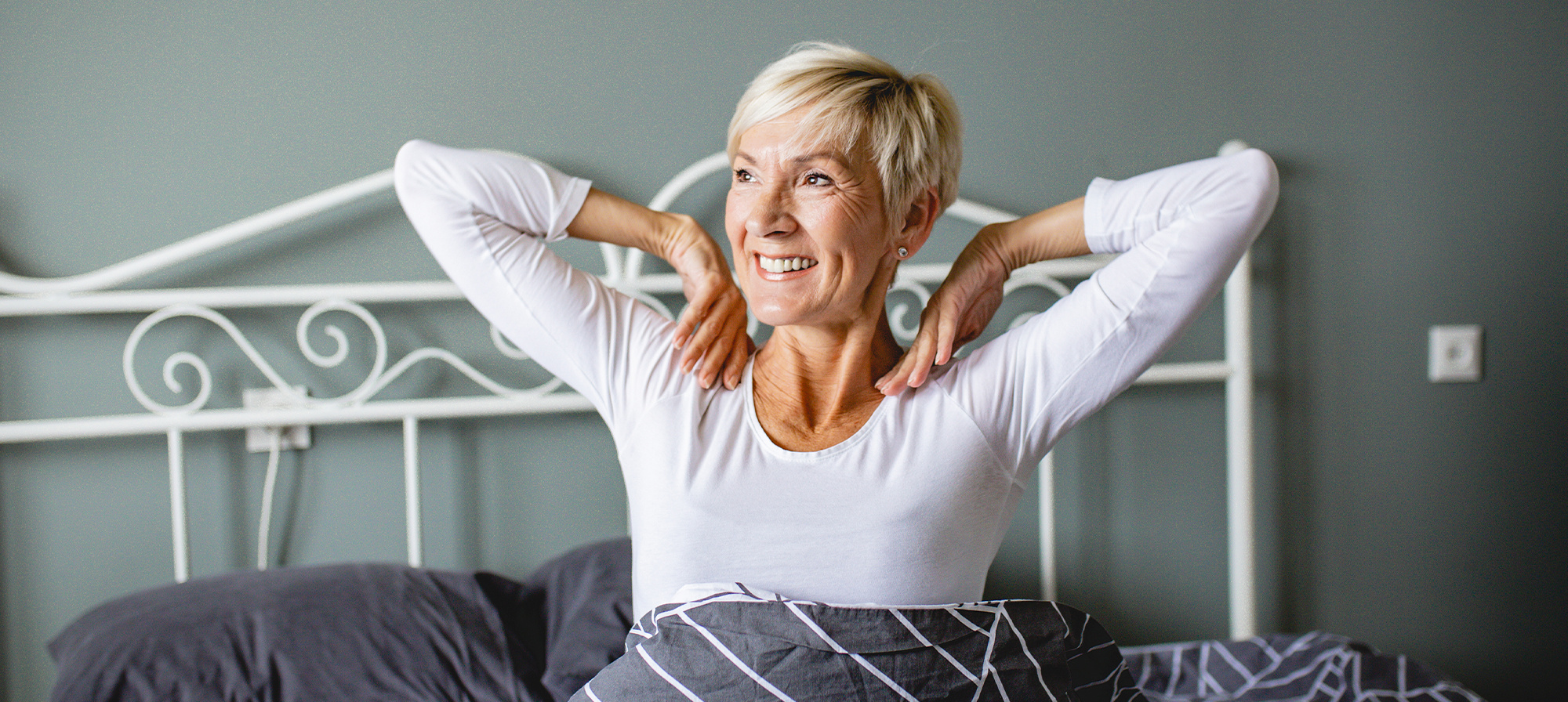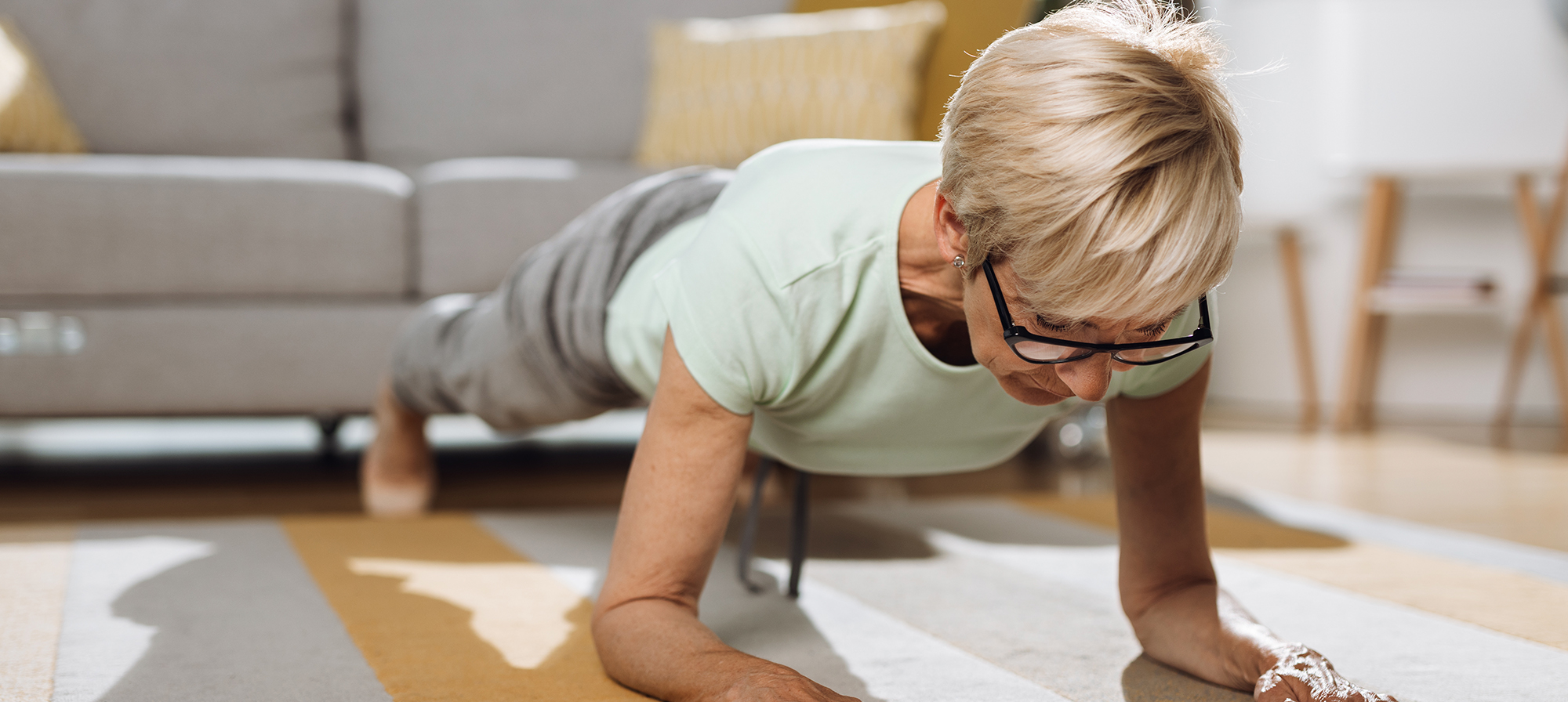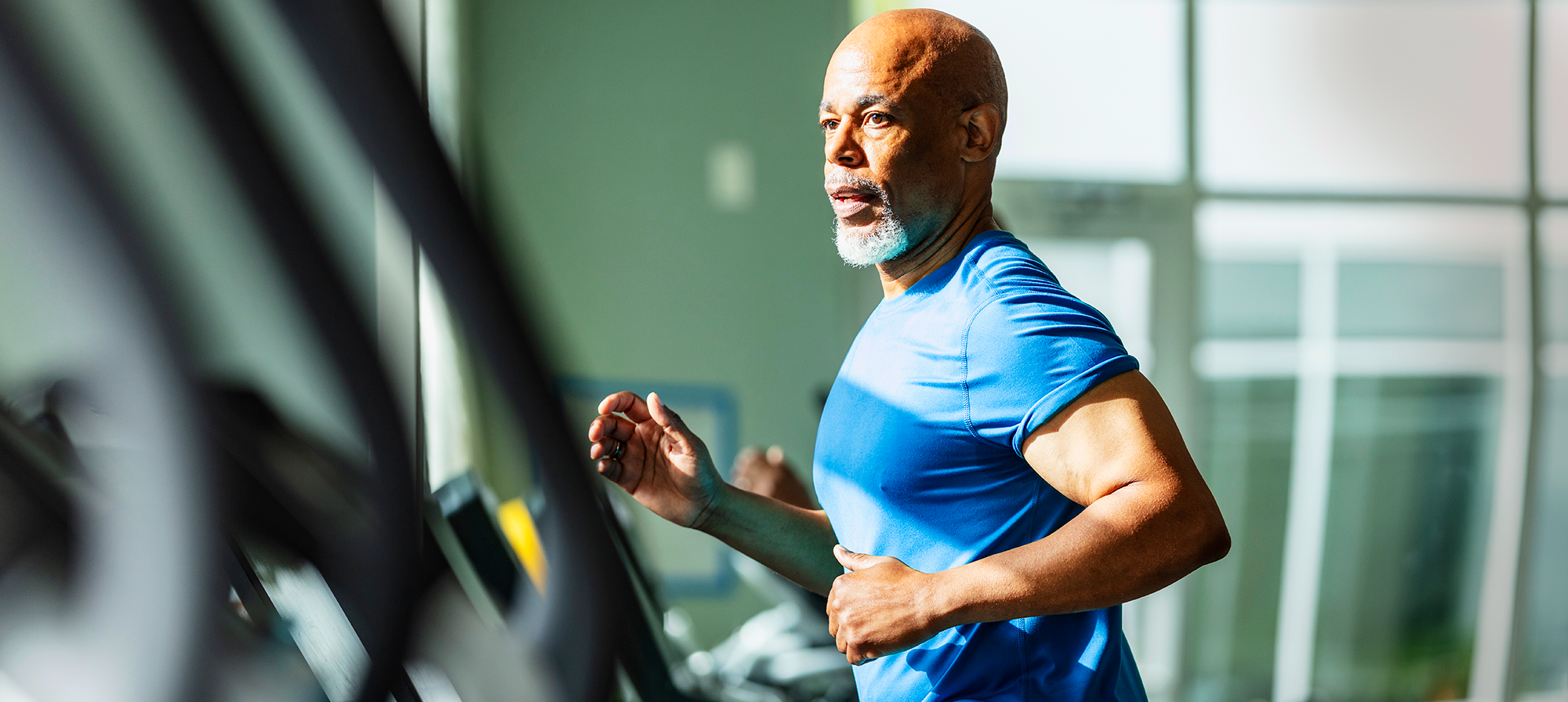It’s no secret that working out helps you sleep. But the exercise-sleep equation works both ways. Sleep is also key to enhancing your fitness levels.
About a third of all adults get too little sleep these days. If you’ve ever dealt with one or more consecutive nights of insomnia, you know how it can mess with your energy levels and mood the next day. Unfortunately, when you’re wiped out and irritable from a lack of sleep, your workouts also suffer.
Just summoning the motivation to work out may seem impossible. If you’re sleep-deprived but still manage to drag yourself to the gym, it’s most likely that you’ll slog through your workout, too exhausted to put much effort into it. You may even feel tempted to cut your workout short.
On the flip side, getting enough deep, uninterrupted sleep —on a regular basis—can greatly enhance your exercise performance and, in turn, your fitness levels. Sleep does this in a range of ways. It can boost your:
- Workout motivation. When you’re well-rested, you’re less likely to skip your workouts. Sleep gives you the physical energy and mental motivation to start or stick with your workout routine.
- Endurance. Going the distance and staying strong all the way through a workout is easier when you’ve slept well. This is true whether you’re on a walk, a run, at the gym, or in a fitness class.
- Quickness. You need quick reaction times to avoid falls when going about your daily activities. Quickness also helps when you’re doing agility training or playing many sports—such as basketball, tennis, or pickleball. Too little sleep puts a dent in your body’s ability to move quickly. Reaction times slow when you’re not sleeping well.
- Muscle recovery (strength). Your muscles, including your heart muscle, do more repair work during sleep than when you’re awake. So, sleep helps support faster, more complete muscle recovery after your workouts—including strength training sessions. Conversely, a lack of sleep disrupts protein synthesis—the body’s process for repairing and building muscle after exercise. This can lead to less muscle mass and strength gains in older adults.
- Accuracy. Sleep improves your focus which results in better hand-eye coordination. That means you’re more likely to hit a tennis ball square in the middle of your racquet, catch that ball, or get that basketball into the hoop.
- Injury prevention. Getting enough sleep helps prevent fatigue, slower reaction times, and reduced agility. These can raise the risk of falls and sports injuries.

Sound sleep brings an abundance of health perks
Boosts in energy, exercise performance, and fitness gains are just a few of the health benefits sleep can bring. Here are some others:
- Weight management. Chronic sleep loss can crank up your appetite. It triggers a boost in levels of the hormone that makes you hungry (ghrelin) and a big drop in the hormone that makes you feel full (leptin). Sleep deprivation also causes cravings for foods high in fat and sugar (think junk food).
- Immunity. Sleep helps keep your immune system strong, allowing it to fight infections and diseases more effectively.
- Emotional health and well-being. Sleep enhances your mood and helps you cope better with stress, so it takes less of a toll on your body and mind. Getting enough sound sleep also helps you better manage intense emotions.
- Brain function. Sleep helps improve your ability to focus, think, pay attention, learn, remember, and make decisions.
- Metabolism. Getting enough sleep keeps your metabolism—how your body turns food and drink into energy—balanced and working more efficiently.
- Hormonal health. Sleep helps regulate hormone levels and keep them stable.
- Lower risk for chronic conditions. Getting enough quality sleep on a routine basis is thought to lower the risk of chronic inflammation. That, in turn, may lower the risk of diabetes, heart disease, dementia, and certain types of cancer.
 Embrace these sleep-inducing habits
Embrace these sleep-inducing habits
If you struggle to get to sleep—and stay asleep—for a solid 7 to 9 hours each night, these tips may help. If they don’t, and you’re still tossing and turning, reach out to your doctor.
- Keep the same sleep schedule. As tempting as it may be to stay up late and sleep in on the weekends, try to resist. Research has found that going to bed and waking up at the same time each day gets you to sleep faster and helps you sleep more deeply and for longer. It does this by setting your circadian rhythm.
- Create a relaxing bedtime routine. In the hour or so before you go to bed, dim the lights, draw a warm blanket around you, play soothing music, or do some deep breathing. Turning off the TV and your other devices can also help prepare your mind and body for sleep.
- Transform your bedroom into a peaceful sleep sanctuary. Create a soft, yet supportive and comfy bed. Keep your bedroom cool, quiet, dark, and free of clutter. Don’t work or watch TV in bed. Your bedroom should be a sanctuary for sleep.
- Cut out alcohol and caffeine before bedtime. A few cocktails or glasses of wine may relax you and help you get to sleep. But as alcohol is metabolized throughout the night, it tends to wake you up. It’s also best to nix any caffeinated drinks after midday or so.
- Watch what you eat and when you eat it. Big meals or spicy foods within a few hours of bedtime can upset your GI tract and disrupt your sleep.
- Quiet your mind’s inner chatter. Do you relive the day’s stressful events as soon as your head hits the pillow? Do you dwell on your worries? If so, practice deep breathing or guided meditation to help silence your inner chatter. Read about 2 life skills that can help calm your mind and get you to sleep.
- Work out earlier in the day. Sticking with your workout routine is key to promoting sleep. (Aim for at least 30 minutes of moderate exercise per day.) But working out (especially vigorously) too close to bedtime can prevent you from getting the shuteye you need.
If sleep still eludes you after trying these tips, reach out to your doctor. They can run tests to see whether a sleep disorder may be to blame. And they may be able to tailor a treatment plan to help break the cycle of insomnia.

Not a Silver&Fit® member? Learn more about everything the program has to offer, including more helpful healthy living tips like this, here on our website.
This information is not intended to take the place of regular medical care or advice. Please check with your doctor before using this information or beginning any self-care program. Images used for this article do not depict any members of the Silver&Fit program.
References
Charest, J., & Grandner, M. A. (2020). Sleep and athletic performance: Impacts on physical performance, mental performance, injury risk and recovery, and mental health. Sleep Medicine Clinics, 15(1):41-57. https://doi.org/10.1016/j.jsmc.2019.11.005 https://pubmed.ncbi.nlm.nih.gov/32005349/
Cleveland Clinic. (2023, September 25). Sleep hygiene: 7 tips for a better bedtime routine. https://health.clevelandclinic.org/sleep-hygiene
Doleza,l B.A., Neufeld, E.V., Boland, D.M., Martin, J.L., Cooper, C.B. (2017). Interrelationship between Sleep and Exercise: A Systematic Review. Advances in Preventative Medicine. https://doi.org/10.1155/2017/1364387
Fullagar, H. H. K., Skorski, S., Duffield, R., Hammes, D., Coutts, A. J., Meyer, T. 2015). Sleep and athletic performance: The effects of sleep loss on exercise performance, and physiological and cognitive responses to exercise. Sports Medicine, 45(2):161-86 https://doi.org/10.1007/s40279-014-0260-0.
Garbarino, S., Lanteri, P., Bragazzi, N. L., Magnavita, N., Scoditti, E. (2021). Role of sleep deprivation in immune-related disease risk and outcomes. Communications Biology, 4(1):1304. https://doi.org/10.1038/s42003-021-02825-4.
Johns Hopkins Medicine. (n.d.) Exercising for better sleep. https://www.hopkinsmedicine.org/health/wellness-and-prevention/exercising-for-better-sleep
Martin, M. (2017, April 20). 7 drills to enhance agility. Ace Fitness. https://www.acefitness.org/resources/pros/expert-articles/6391/7-drills-to-enhance-agility/
Mayo Clinic. (n.d.). Sleep your way to better athletic performance.
https://www.mayoclinichealthsystem.org/hometown-health/speaking-of-health/sleep-and-athletic-performance
National Personal Training Institute, Florida. (n.d.). The impact of sleep on your fitness progress and performance. https://nptiflorida.edu/the-impact-of-sleep-on-your-fitness-progress-and-performance/
Newsom, R., & Rehman, A. (2024, April 1). The connection between diet, exercise, and sleep. Sleep Foundation. https://www.sleepfoundation.org/physical-health/diet-exercise-sleep#
Salamon, M. (2022, April 4). Snooze more, eat less? Sleep deprivation may hamper weight control. Harvard Health Publishing. https://www.health.harvard.edu/blog/snooze-more-eat-less-sleep-deprivation-may-hamper-weight-control-202204042718
Sleep Foundation. (2024, April 12). What is sleep quality? https://www.thensf.org/what-is-sleep-quality/
Watson, A. (2017). Sleep and athletic performance. Current Sports Medicine Reports, 6(16), 413-418. https://journals.lww.com/acsm-csmr/fulltext/2017/11000/sleep_and_athletic_performance.11.aspx
This article was written by Gail Olson, edited by Kimberley Reynolds, and clinically reviewed by Jaynie Bjornaraa, PhD, MPH, PT, SCS, LAT, ATC, CSCS, CSPS on (12/23/2024).





